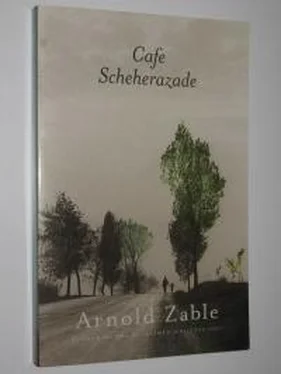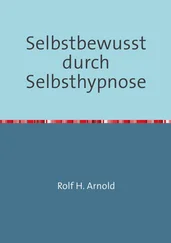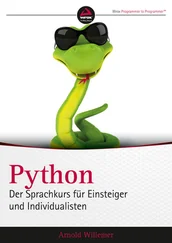Arnold Zable - Cafe Scheherazade
Здесь есть возможность читать онлайн «Arnold Zable - Cafe Scheherazade» весь текст электронной книги совершенно бесплатно (целиком полную версию без сокращений). В некоторых случаях можно слушать аудио, скачать через торрент в формате fb2 и присутствует краткое содержание. Город: Melbourne, Год выпуска: 2001, Издательство: Text Publishing Company, Жанр: Проза, на английском языке. Описание произведения, (предисловие) а так же отзывы посетителей доступны на портале библиотеки ЛибКат.
- Название:Cafe Scheherazade
- Автор:
- Издательство:Text Publishing Company
- Жанр:
- Год:2001
- Город:Melbourne
- ISBN:нет данных
- Рейтинг книги:4 / 5. Голосов: 1
-
Избранное:Добавить в избранное
- Отзывы:
-
Ваша оценка:
- 80
- 1
- 2
- 3
- 4
- 5
Cafe Scheherazade: краткое содержание, описание и аннотация
Предлагаем к чтению аннотацию, описание, краткое содержание или предисловие (зависит от того, что написал сам автор книги «Cafe Scheherazade»). Если вы не нашли необходимую информацию о книге — напишите в комментариях, мы постараемся отыскать её.
Cafe Scheherazade — читать онлайн бесплатно полную книгу (весь текст) целиком
Ниже представлен текст книги, разбитый по страницам. Система сохранения места последней прочитанной страницы, позволяет с удобством читать онлайн бесплатно книгу «Cafe Scheherazade», без необходимости каждый раз заново искать на чём Вы остановились. Поставьте закладку, и сможете в любой момент перейти на страницу, на которой закончили чтение.
Интервал:
Закладка:
193
"For a time I felt the same," says Avram. "I thought we could rebuild our lives in Poland. But after the Kielce pogrom I was not so sure. I was sent there, in July 1946, as a member of a
Bund delegation, to investigate. Out of a pre-war population of forty-five thousand, two hundred Jews had returned to Kielce after the war, from the Soviet Union, from the camps and places of hiding.
"The police confiscated the pistols of the returnees the day before the pogrom. They had no means to defend themselves. Fortytwo Jews were murdered in the assault. Our delegation was denied entry to the city, but I saw some of the injured when we returned to Lodz.
194
"Their wounds were terrible. Some even had stiletto marks imprinted on their faces. They were attacked by a mob, by men clutching knives, and women who used their pointed heels as weapons. They battered their victims in a frenzy. When I looked at the wounded my old suspicions returned; and my bitterness, my rage.
"Yet even then I wanted to stay. Not all Poles were anti-Semites.
There were Poles who had saved Jewish lives. There were Poles who had been our comrades in the forest, or worked with us in the partisan underground. If I have learnt nothing else, it is this.
No one has a monopoly over hatred. No one has a monopoly over suffering.
"The final blow came in 1948 when the Communist Party absorbed the Polish socialists. We understood what this meant. Once the
Bolsheviks came to power there would be no compromise. The Bund would become a prime target. We had no alternative but to escape.
"I was anxious to finish my studies," says Masha. "I had reached the fourth year. But I also had no choice. As a Bund leader in
Katowice my father was in danger of being arrested. He told me if
I did not join him in leaving Poland, the whole family would have to stay. I would have their lives on my conscience.
"We were under surveillance," says Avram. "For months we had been smuggling out our comrades and friends. Some stole out via the port of Danzig, over the Baltic Sea to Sweden; others fled via the Tatra mountains to Czechoslovakia. We had 195 contacts in the
Polish border police, a network of smugglers and supplies."
"I remember the day of our decision well: 25 May 1948, Avram's birthday. We were with a group of Bund comrades in an apartment in Lodz. They were all planning their escape."
"You see, Martin, there were two ways to leave Poland," says
Avram. "Those of us who had been very active in the Bund decided to steal across the borders. But Masha's father tried the legal option. He wanted his family to remain intact. He had applied for, and received, official exit visas, a year earlier. He decided to leave openly."
"On that day, Avram's birthday, when he told me he was going to escape, we agreed to meet in Paris," says Masha, pursuing another tack. "It was then that there came to us the idea that we would celebrate our reunion in Scheherazade, as did the lovers in
Remarque's novel. We would go to the nightclub and drink
Calvados, the apple brandy that the lovers drank. It pleased us to think we were involved in a romance. It pleased us to think we were like characters in a novel. It lightened our burden.
Besides, it was not certain that we would ever see each other again."
Their hopes turned towards Paris. They fantasised a way out beyond their landlocked lives. At the centre of their imaginary map stood a beacon called the Arc de Triomphe. Radiating from the arch, like tracks of tinsel, sprawled the boulevards of a new 196 dream. In their mind's eye they beheld dimly lit bridges rising from the River Seine. They saw themselves strolling over cobbled streets lit by lamps glowing like replica moons, or gliding in a carriage through the Bois de Bologne, the melodious clip-clop of hooves marking time within the shadows. They pictured the elegant decay of the Hotel International, its foyers reeking with stale carpets, its rooms layered with dust; and if its rooms proved to be too stifling, they could make their way to Scheherazade, a lover's retreat.
After all, despite all they had endured, Masha was twenty-one and
Avram twenty-four, when they decided to leave Poland.
Avram left in mid-September 1948, when the first cold winds began to blow. The countryside lay resplendent under a veil of golds.
Mid-morning frost rose from the earth. The land was spent, the harvest all but over; ochre haystacks and cow dung lay scattered over fallow fields.
There were six in the group: four men and two women. Comrades, toughened through years of struggle, buoyed by each other's company, and young enough to feel the thrill of intrigue. They were veterans, masters of stealth in times of danger. Each one had seen death many times over, felt its presence, inhaled its stench.
They journeyed by train south, from Lodz to Katowice. They squeezed into a taxi and drove deep into the Tatra 197 mountains.
They got out several kilometres from the Czech border, and moved on by foot, guided by a professional smuggles They descended through a forest to a frontier stream, hid until evening, and waded across the border at night.
Many years later, what they would recall about this moment was not the fear, but their amused irritation as Avram chewed a bar of chocolate. The crackle of silver foil grated on their ears. It took a supreme effort to restrain themselves from breaking out into fits of laughter.
They crept over a strip of no man's land, and continued on, by foot, though the night, towards the Czech city of Bratislava.
They approached its outskirts at dawn, joined Czechoslovaks on the way to work, and merged with the moving crowds. They made their way to the central station, and boarded a train to Prague.
They allowed themselves time to visit Prague's renowned synagogue, and the ancient cemetery that had miraculously survived the war intact, but moved on before the day was oven Now that they had set their sights on the west, they did not want to look back.
They entrained for Germany. They crossed over the Czech-German border with ease. For the first time they were not questioned.
Their safe passage had been prearranged. They stepped off the train in Munich. Avram could not abide the thought of remaining there for even a day. Munich was the heartland of the former
Reich. Dachau concentration camp was nearby; and just 160 kilometres to the north, stood the bombed city of Nuremberg.
198
A mere decade earlier the Nazi Party had marched over its cobbled streets. They held aloft banners of the eagle as predator. They had gathered, in their tens of thousands, on the outskirts, in the assembly grounds, on fields and runways where the Nuremberg rallies took place.
Whenever Avram saw men in uniform, whether railway bureaucrats or security guards, the passion for revenge shook his whole being.
The final glimpse of his mother returned to goad him on. "Take care of yourself in the forest," she told him. And then she disappeared, amidst the barking of dogs, the screams of the wounded, arm-in-arm with her daughter, Basia, clinging to baby
Nehamiah, clasping the hand of little Shmulek.
Avram moved on in haste. Now that the decision had been made, he did not want to endure a moment's delay. And there was something else: his longing for Masha, a girl with blue-green eyes. Only now that they were separated did he realise how intense this longing was.
He left the group and travelled on alone, west from Munich to
Stuttgart, where he met up with a former comrade. Together they journeyed to the French border, guided by a smuggler. They hid in a cemetery until nightfall. The smuggler directed them to a church that stood against the border. They scaled a brick wall and Germany was behind them.
They made their way to the nearest station, boarded the final night train, avoided the gaze of conductors, and remained curled up on their seats, their faces concealed by the dark. Their imagined freedom was within their grasp. Yet the hours dragged by. 199 They finally drifted into an uneasy sleep. They journeyed through one last night; and awoke to a sprawl of Parisian suburbs, radiant in the morning light. It was 23 September 1948:
Читать дальшеИнтервал:
Закладка:
Похожие книги на «Cafe Scheherazade»
Представляем Вашему вниманию похожие книги на «Cafe Scheherazade» списком для выбора. Мы отобрали схожую по названию и смыслу литературу в надежде предоставить читателям больше вариантов отыскать новые, интересные, ещё непрочитанные произведения.
Обсуждение, отзывы о книге «Cafe Scheherazade» и просто собственные мнения читателей. Оставьте ваши комментарии, напишите, что Вы думаете о произведении, его смысле или главных героях. Укажите что конкретно понравилось, а что нет, и почему Вы так считаете.












